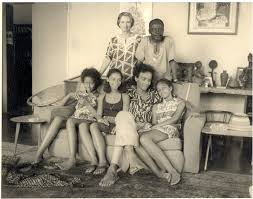 When asked to submit something for the blog quite some time ago, the suggestion was that the subject be something that readers would find moving in some way. Recent press has been highlighting the degree of loneliness some are experiencing and how it can effect wellbeing physically, mentally and isn’t always visible to others.
When asked to submit something for the blog quite some time ago, the suggestion was that the subject be something that readers would find moving in some way. Recent press has been highlighting the degree of loneliness some are experiencing and how it can effect wellbeing physically, mentally and isn’t always visible to others.
In the run up to Christmas festivities I went to one of the so-called Pound shops. It leans towards my frugal nature and there is nothing like a bargain. However many use such shops to survive with a limited budget.
As I wandered down the first aisle a rather frail but spritely elderly woman moved to allow me to pass and I thanked her and we exchanged pleasantries. As I made my way through the aisles and shelves she seemed on the same route and I couldn’t help but overhear her saying ‘Merry Christmas’ to virtually every person she encountered. I made my way to the checkout and there she was again in front of me in the line. As I looked at her clothes, I could see that she had many layers of threadbare jumpers and no coat on what was a cold day.
She seemed to know the person at the checkout and was asking if they were ready for the holidays and he asked her the same to which she answered yes this was her last shopping trip. On the conveyor belt were 2 tins of soup. He commented, ‘No turkey’? She shook her head, saying nothing and placed the tins of soup in her shopping bag, continuing to wish everyone around her a Merry Christmas and the same to us as she trudged out of the shop, bag in hand. My heart was full as she had shared the joy of the season with everyone she encountered in the shop and yet there was a loneliness to her life.
As a nurse and midwife (retired), it’s always been in my nature to reach out and help others in need. I desperately wanted to ask this dear lady if she was having a Christmas meal with anyone and if not invite her to share ours. I feared she might only be facing a tin of soup. However, she had disappeared from sight and I will never know.
It left me feeling a touch of sadness for her. There is much awareness about people being lonely and particularly at this time of year. Many organisations, charities are endeavouring to help those who may be lonely. There will always be those who won’t want help and soldier on like this woman who found some company, even joy in sharing festive greetings in a shop. A lesson perhaps for the less lonely to be bolder in reaching out to others not only at Christmas but in everyday life.
The government is investing in ‘loneliness’ as it is felt it has been shown to impact health and wellbeing. This is highlighted in this article in The Guardian:“UK to tackle loneliness crisis with £11.5m cash injection”
The money will help establish projects that will bring people together and in so doing reduce elements of loneliness, improving health and wellbeing.
“Loneliness and the feeling of being unwanted
is the most terrible poverty.”
Mother Teresa





